Genetics
-
 Genetics
GeneticsMating with Neandertals reintroduced ‘lost’ DNA into modern humans
Neandertal DNA brought back some old genetic heirlooms to modern humans.
-
 Genetics
GeneticsResurrecting extinct species raises ethical questions
'Rise of the Necrofauna' examines the technical and ethical challenges of bringing woolly mammoths and other long-gone creatures back from the dead.
-
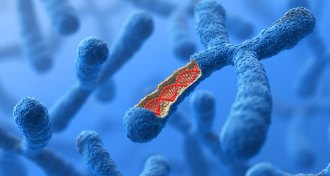 Genetics
GeneticsDoubling up on ‘junk DNA’ helps make us human
DNA duplicated only in humans may contribute to human traits and disease.
-
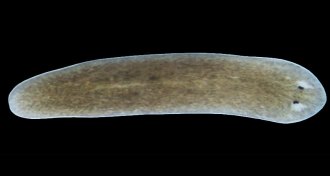 Animals
AnimalsTo understand the origins of pain, ask a flatworm
A danger-sensing protein responds to hydrogen peroxide in planarians, results that hint at the evolutionary origins of people’s pain sensing.
-
 Genetics
GeneticsWe’re more Neandertal than we thought
Neandertals contributed more to human traits than previously thought.
-
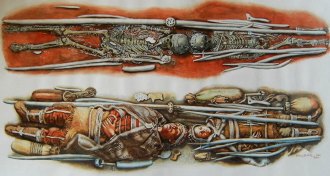 Genetics
GeneticsAncient humans avoided inbreeding by networking
Ancient DNA expands foragers’ social, mating networks.
By Bruce Bower -
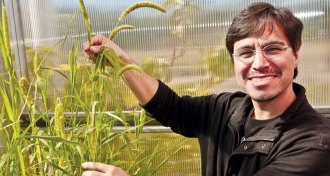 Plants
PlantsJosé Dinneny rethinks how plants hunt for water
Plant biologist José Dinneny probes the very beginnings of root development, which may have important implications for growing food in a changing climate.
By Susan Milius -
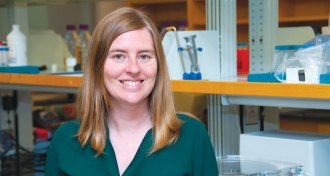 Anthropology
AnthropologyChristina Warinner uncovers ancient tales in dental plaque
Molecular biologist Christina Warinner studies calculus, or fossilized dental plaque, which contains a trove of genetic clues to past human diet and disease.
-
 Health & Medicine
Health & MedicineLuhan Yang strives to make pig organs safe for human transplants
A bold approach to genome editing by biologist Luhan Yang could alleviate the shortage of organs and ease human suffering.
-
 Life
LifeCracking the body clock code wins trio a Nobel Prize
Circadian clock researchers take home the Nobel Prize in physiology or medicine.
By Tina Hesman Saey and Aimee Cunningham -
 Genetics
GeneticsAncient boy’s DNA pushes back date of earliest humans
Genes from South African fossils suggest humans emerged close to 300,000 years ago.
By Bruce Bower -
 Genetics
GeneticsA mutation may explain the sudden rise in birth defects from Zika
A mutation in a protein that helps Zika exit cells may play a big role in microcephaly.